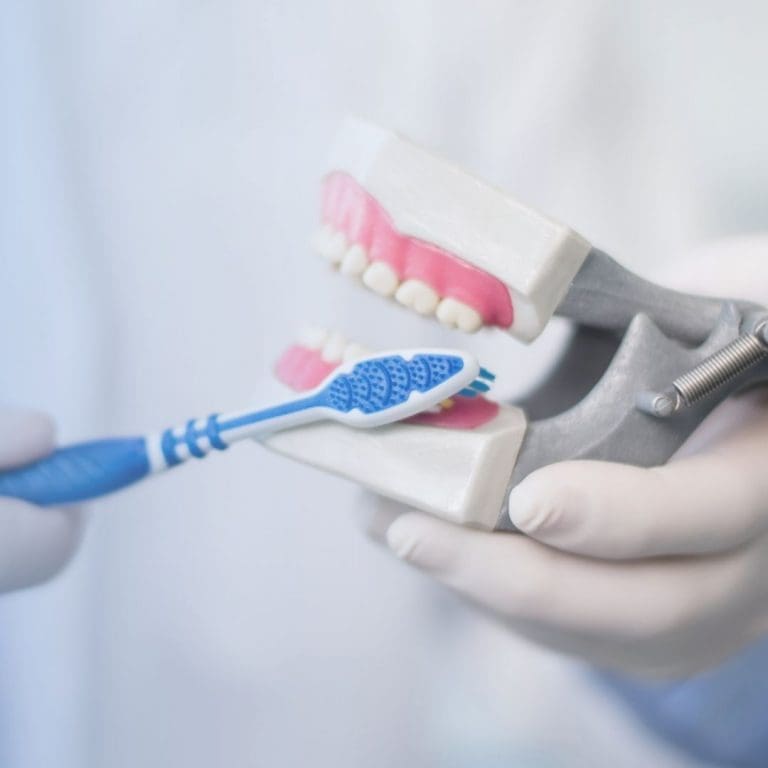Denture Care
Dentures can help you have a great smile and have an important part to play in your overall health and quality of life. It can seem challenging at times to adapt to life with a partial or complete set of dentures. You may have difficulty speaking, chewing, or have problems like bad breath or dry mouth. As many as one-half of denture wearers get a fungal infection called oral stomatitis. Fortunately, there are some ways that you can prevent this common infection and ensure that you are able to smile, eat, and speak with confidence.
Advice and Tips on Caring for Your Dentures
Here are some tips on how to properly care for your dentures so that you protect your investment and maintain your beautiful smile:
Preventing Infections
In some cases, dentures can lead to fungal infections. Oral bacteria has also been linked to respiratory tract illnesses, according to some studies. This highlights why it is critical to clean your dentures and mouth on a daily basis.
You need to be brushing your mouth, gums, cheeks, and tongue using a soft-bristled toothbrush before replacing your dentures every morning. This assists in removing accumulations of bacteria and plaque that could otherwise cause gum irritation and bad breath.
Brush Your Dentures
You should be brushing your dentures each day to prevent stains and accumulations of plaque and bacteria. First, rinse your dentures to remove any food particles. Brush them using a soft-bristled toothbrush or specialized denture brush. When brushing, use a mild hand soap and warm water. Avoid bleaching agents.

Denture Care FAQ
Here are a few frequently asked questions about denture care:
What is the right way to remove my dentures?
Properly cared for, your dentures should last up to seven years. As simple as it may sound, removing your dentures properly is an important part of caring for them, so follow these steps.
- Filling your sink with water can keep your dentures from breaking if you should drop them. You can also place a towel around the edge of sink and one on the floor.
- Remove your top dentures by pressing your thumb over the front of the teeth, pressing upward and outward.
- To remove your lower denture, gently pull on it and rock it from side to side.
Why do my dentures seem loose?
It’s not unusual to notice loose dentures, particularly after you have first been fitted with them. Whenever your dentures slip, just bite down while swallowing to reposition them.
When To Contact Your Dentist
If your dentures are often loose in your mouth, or you are experiencing pain or discomfort, the shape of your gums may have changed. Your dentist can adjust your dentures so that they fit better and are more comfortable.
For More Information
If you have any remaining questions about how to care for your dentures, or if your dentures are becoming loose or uncomfortable, reach out to us at your earliest convenience to schedule an appointment or to request additional information.
